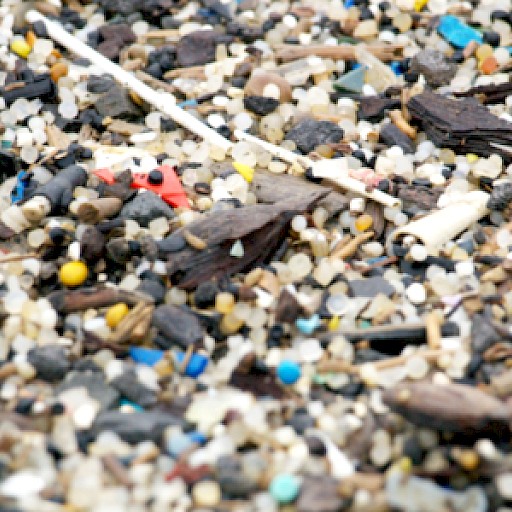Action 52: Zero pellet loss in the manufacturing chain
Action Title: Promote initiatives and exchange of best practice aiming at zero pellet loss along the whole plastics manufacturing chain from production to transport.
Lead Party(ies): France, with participation from Germany, Netherlands, Portugal, Seas at Risk and other NGO’s (FFI, FIDRA)
What is the issue?
All plastic products are made from plastic pellets, powders, or flakes. This material is handled and managed across every stage of a supply chain including production, transport, storage, conversion into final products, recycling, and disposal. Pellets can be lost at every point of the plastics supply chain and once in the environment are impossible to retrieve. This action looks to reduce pellet loss to zero across the supply chain.
What has OSPAR Done?
A background document was approved in January 2019. Following a series of stakeholder discussions, a Recommendation on a pellet loss certification schemes was drafted and approved in 2021. Guidelines to support the implementation of the Recommendation and help create coherence in national approaches to the implemention of external certification schemes were also adopted in 2021. This work builds on national work that has been developed in Scotland (UK) and Germany.
Final outputs and published reports
COMPLETED IN 2021
-----------------------------
OSPAR Background document on pre-production Plastic Pellets
-----------------------------
OSPAR 2021 adopted Recommendation 2021/06 on the reduction of plastic pellet loss into the marine environment to reduce the loss of plastic pellets into the marine environment by promoting the timely development and implementation of effective and consistent pellet loss prevention standards and certification schemes for the entire plastic supply chain.
The Recommendation specifies minimum requirements which standards and certification schemes should contain. Contracting Parties are encouraged to work towards the development and the implementation of a harmonised accreditation framework within the OSPAR Maritime Area.
The Recommendation is supported by a set of guidelines for Contracting Parties and industry.

